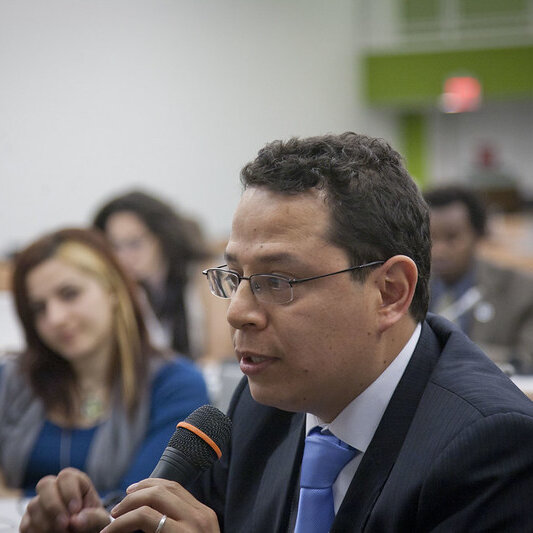
This collection of commentaries by experts in the science and human rights interface provides a variety of perspectives and additional context on the ISC’s ‘interpretation of the right to participate in and benefit from science‘ – an important milestone for the advancement of rights and obligations associated with science.
The recently published commentary of the International Science Council (ISC), calling for the universal recognition of the human right to participate and to enjoy the benefits of science is timely and fundamental. Although this right is recognized by Art. 27 of the Universal Declaration of Human Rights and by Art. 15 of the International Covenant on Economic, Social and Cultural Rights, states have done little to promote, protect and guarantee this right.
The interpretation by the ISC highlights two characteristics of all human rights. Firstly, it recognizes that it is a fundamental right (with individual and collective dimensions), while underscoring that all states, as duty-bearers, have the obligation to adopt the necessary laws and policies to assure the access and enjoyment of such a right. If international law recognizes the right to participate in and benefit from science, states must put in place appropriate legal recourses (administratively or judicially) to enforce it and protect the scientific community.
Secondly, the ISC highlights two main components of this right: the right to participate in science and the right to enjoy its benefits. The participation element is interconnected with the rights to self-determination/autonomy, education, free speech, freedom of assembly and, of course, academic freedom, among others. This connection was reinstated in a recent report from the UN Special Rapporteur on the Right to Education to the Human Rights Council. The right to enjoy its benefits is also related to the rights mentioned above while also highlighting a strong correlation with the rights to equality and non-discrimination, access and use of public information, as well as social values like the development of knowledge for the advancement of humanity.
The importance of science is undeniable, However, in 2023 the UNESCO chairs stressed two worrisome trends: inequalities in the access to scientific knowledge and the growing erosion of trust in sciences as well as restrictions and attacks against scientific (and academic) freedom as well as members of the scientific community.
The adoption of the ISC’s interpretation gives universities, research centres and public officers a clear roadmap on what is the right to science and its elements. As the scientific community organizes itself in the promotion and protection of this right, it would be important to emphasize that this interpretation by the ISC on the right to participate in and to enjoy the benefits of science includes the protection of Indigenous and traditional knowledge, particularly of Indigenous Peoples, and that states must adopt constitutional, legal and administrative recourses to protect a right to participate in and to enjoy the benefits of science as an autonomous right, not just as a side element of other rights, like academic freedom or free speech.

Camilla Croso, Executive Director of the Coalition for Academic Freedom in the Americas.
E-mail: [email protected]

Salvador Herencia-Carrasco, Professor and member of the Human Rights Research and Education Centre, University of Ottawa.
E-mail: [email protected]
The International Science Council (ISC) has released its interpretation of the “right to participate in and benefit from science,” providing a clear framework for understanding this fundamental right.
The interpretation outlines the key obligations and responsibilities required to ensure universal access to science and scientific knowledge, while emphasizing the protection of scientific freedoms and the promotion of education. Aligned with the ISC’s Principles of Freedom and Responsibility in Science, it reinforces the vision of science as a Global Public Good.

The Right to Science
The International Science Council believes that there is a universal human right to participate in and enjoy the benefits of science, and that it is a responsibility of governments to create and sustain the opportunities of citizens to use this right.
The Right to ScienceDisclaimer
The information, opinions and recommendations presented in our guest blogs are those of the individual contributors, and do not necessarily reflect the values and beliefs of the International Science Council